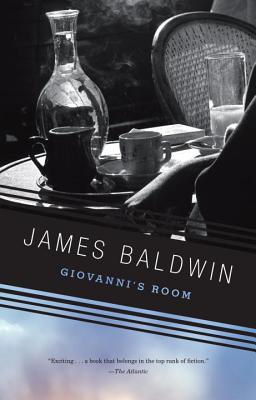APS TOGETHER
Day 6
Part 2, all of Ch. 1, p. 75-84
September 22, 2020 by Carl Phillips
The opening of part two lays out a fascinating physics/metaphysics: joy and amazement, at their peak, seem to bring about their own demise, getting displaced by anguish and fear – across the surface of which David and Giovanni lose “balance, dignity, and pride.” Another way of putting it is that too much happiness makes them remember that their happiness is societally forbidden, which leads to fear, which in turn leads to shame about the behavior that led to their happiness. Argh, indeed!
Also interesting here is the connection David makes between memorizing Giovanni’s face and the consequent metamorphosis of that face into something more like the skull of a stranger. Is that the problem, then, this attempt to fix something in memory and make it lasting? Better to have thought of this as a passing thing from the start – is that the lesson?
Remember, nothing random with Baldwin. The word “metamorphosis” occurs twice in two pages, first to describe the change that has happened with Giovanni’s face, in David’s eyes. Then the metamorphosis that comes with spring – after all the claustrophobia, we get expansive scenes along the river, the tourists, the bookshops whose “keepers seemed to have taken off another garment, so that the shape of their bodies appeared to be undergoing a most striking and continual metamorphosis. One began to wonder what the final shape would be.” That last sentence could apply just as easily to the changes happening in the relationship between Giovanni and David. We already know the outcome of events – that’s different, I think, from the final shape of…of the narrative’s sensibility, and of our own sensibility by the time we’ve finished this novel. How will we have been changed, by story’s end?
More physics. As the exteriors expand ever outward, the psychological interiors of David and Giovanni contract, become even more claustrophobic – the natural world and human self-consciousness as foils for one another…
“It made them feel their poverty again, through the narcotics of character, and dreams of conquest, and mutual contempt.” I love this sentence. I think Baldwin means that each of these is a drug, or can be: character, dreams of conquest, mutual contempt. If that’s what he means, I agree with him. Meanwhile, right after this sentence, we learn that Giovanni gives more of himself to David than David gives back to Giovanni. So, as much as David may be drawn to Giovanni, as toward a drug, it’s Giovanni who’s addicted – we’ve already learned that David intends to leave Giovanni, who’s like a habit to be broken. Giovanni’s too lost in addiction, to make a similar choice.
The caretaker in the earlier reading summed up men as “impossible” without women. Now we have Giovanni’s generalization about women as “tempting,” “treacherous,” “bottomless,” and “shallow.” (Notice how these could also describe David.) Giovanni follows up by saying he respects women “for their inside life, which is not like the life of a man,” another generalization, followed by David’s generalization about women not liking the idea of an inside life…Just as the rooms in this novel are claustrophobic, so is the thinking, often, when it comes to how the characters consider gender; the characters are sometimes as guilty of provincial thinking as the society is whose provinciality makes it so hard for people like Giovanni and David just to be themselves.
David’s not afraid of love so much, it seems, as afraid of lust, of where lust might lead him. He wants to believe he’s ‘better’ than that. Maybe if he truly loved Giovanni, he could be s practical as Giovanni seems to be about sex and infidelity. Maybe. Or maybe there’s something to Giovanni being Italian and David being American, as Giovanni suggests? I don’t know. Or all I know is that I’ve been in David’s position. To paraphrase Sexton, I have been his kind.
